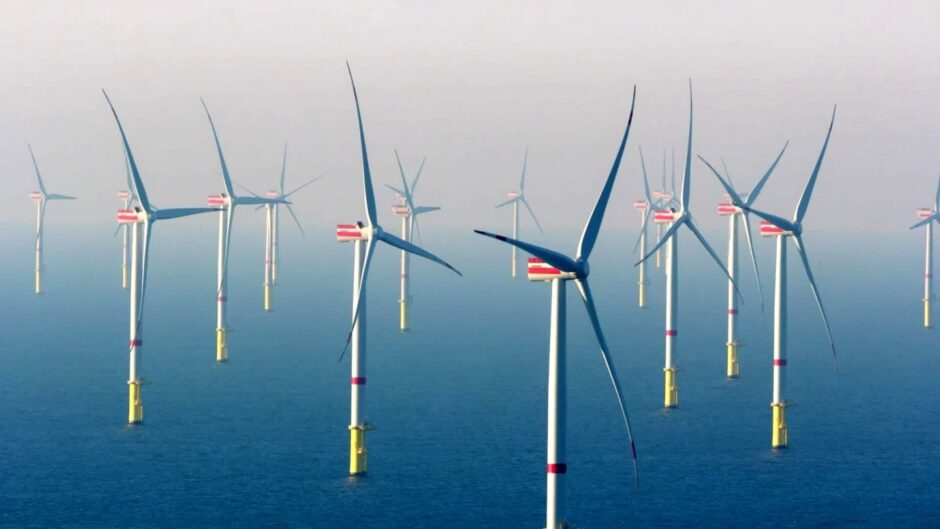
This may just be a tad too radical for some but I believe there’s a chance the great offshore wind boom is in serious danger of coming to a screaming halt and for the consumer, this may not be a bad thing.
In fact, the more I think about it the more I believe that it may be a very good thing.
Why? Well, let’s do the easy bit first. For Scotland, the industrial benefit of offshore wind is extremely limited and if the offshore wind industry disappeared overnight it wouldn’t be as huge a loss to us as it would to countries such as Denmark, Germany and of course, China.
You can argue about that amongst yourselves but anyway what’s much more likely to put the brakes on offshore wind is that the cost of offshore wind projects has increased dramatically and it’s increasingly difficult to see how to make money out of it without huge government guarantees and yet the minimum strike price being offered by governments under contracts for difference deals hasn’t been high enough to deal with that.
It’s the reason the Danish Energy Agency didn’t receive a single bid for any of the three offshore wind farms last month.
However, the other big and real-world issue is that wind energy output is variable and suffers from what the Germans – who are doing really well from manufacturing offshore wind hardware by the way – call “dunkelflaute”.
It’s a great German word and describes a period where there is little or no wind and minimal sunshine so generating electricity is essentially impossible.
It’s been like that in Aberdeenshire recently because we have had a massive high-pressure area sitting over the top of us which on the day I’m writing, has also produced some quite heavy fog. So not a lot of solar energy either.
In fact the UK electricity mix at the time of writing showed that wind was only generating 2.2% out of a total of 42GW.
As a result, gas is having to do all the heavy lifting and accounts for 65% of all generation and that means prices are going to be higher. Germany apparently had to restart some coal-fired stations.
However, just before dunkelflaute hit us, some 70,000 homes in Wales lost power as Storm Darragh hurtled in from the Atlantic.
Some homes still hadn’t had power restored after five days. Of course, major storms mean having to close down wind generation to avoid turbine damage.
So no benefit from wind in bad weather or when there’s no wind and yet as a recent Energy Voice article explained “The latest figures from data platform Elexon Insights show that the UK lost £1 billion in excess wind power” so far this year due to a practice called curtailment which happens when wind farms are paid to switch off if the grid is at capacity.
That means energy is lost because we’ve nothing else we can do with it, we can’t move it to somewhere it might be needed and we can’t store enough of it.
The answer, according to the electrify everything lobby, is to modernise and expand the grid and build more storage. Oh, and maintain our gas-fired – coal-fired in Europe – stations just in case.
Apart from the ridiculous cost of doing that, stringing pylons and building substations across the country is hardly desirable unless you’re a shareholder in an electricity supply company or a big player in the grid supply chain.
And by the way, battery storage will only give you a few hours at best and isn’t designed to help the consumer but to help balance and stabilise the grid if needed. It’s no use to those whose local supply has been brought down by wind, or snow.
It’s taken me a while to get here but I now believe offshore wind isn’t the answer for consumers in the new energy era but going “off-grid” using small solar and small wind with hydrogen storage designed for at least a couple of weeks as many in Europe have already found out, is. Governments need to rethink this gameplay.
And let’s be clear, more wind and an expanded grid won’t bring prices down because we will have to pay for it. But if I’m going to have to pay anyway I’d rather invest in something that I have control over, provides me with both energy security and resilience and means I’ll never have to pay another electricity bill.
If you want low-cost electricity then generate it yourself either as an individual or as a community.
The electricity supply companies won’t like it but who cares? Consumers are more important. Use solar, small wind, local tidal or hydro with some hydrogen storage instead. It’s the 21st century way!
Recommended for you
